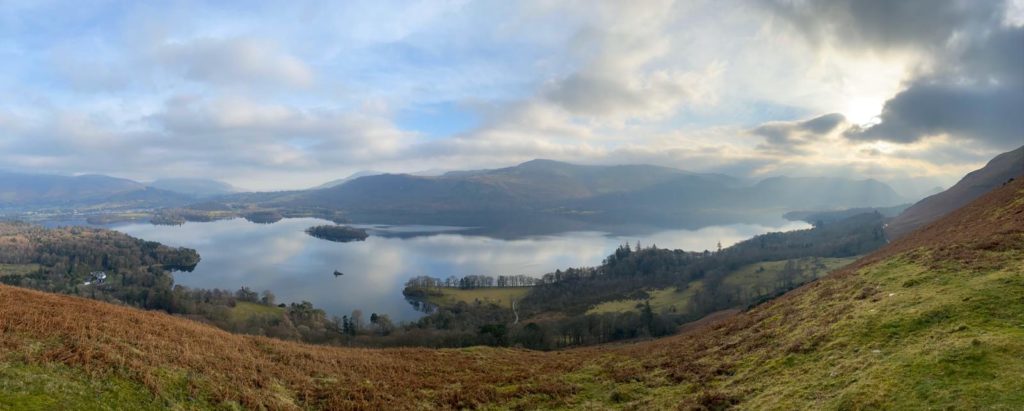Nope. Just a folly built by a wealthy Cambridgeshire landowner many moons ago (and recently restored by the National Trust, which now owns both his magnificent house — Wimpole Hall — and estate).
Daily Archives: January 1, 2020
Today in the Lake District
Newcomers to the public domain
January 1, 2020 is Public Domain Day: Works from 1924 are open to all!
This from Duke Law School:
On January 1, 2020, works from 1924 will enter the US public domain, where they will be free for all to use and build upon, without permission or fee. These works include George Gershwin’s Rhapsody in Blue, silent films by Buster Keaton and Harold Lloyd, and books such as Thomas Mann’s The Magic Mountain, E. M. Forster’s A Passage to India, and A. A. Milne’s When We Were Very Young. These works were supposed to go into the public domain in 2000, after being copyrighted for 75 years. But before this could happen, Congress hit a 20-year pause button and extended their copyright term to 95 years.
Now the wait is over. How will people celebrate this trove of cultural material? The Internet Archive will add books, movies, music, and more to its online library. HathiTrust will make tens of thousands of titles from 1924 available in its digital library. Google Books will offer the full text of books from that year, instead of showing only snippet views or authorized previews. Community theaters can screen the films. Youth orchestras can afford to publicly perform the music. Educators and historians can share the full cultural record. Creators can legally build on the past—reimagining the books, making them into films, adapting the songs.
I see the hand of James Boyle in this. A great scholar, and a wonderful advocate for the public domain.
The designated mourner
Pitiless summing up in an NYRB review article by Fintan O’Toole on Joe Biden’s quest to be the bearer of the Kennedy flame in US politics:
The Master Clock has moved too far forward. The Kennedys are too long dead. “Irish Catholic” no longer carries that old underdog voltage of resistance to oppression. The center of gravity of Irish-American politics now gathers around Trump: Mick Mulvaney, Kellyanne Conway, Brett Kavanaugh. A politics of white resentment has drowned out the plaintive wail of common sorrow. The valley of tears has been annexed as a bastion of privileged white, male suffering. Biden, who once promised to turn back time, is an increasingly poignant embodiment of its pitilessness.
Quote of the Day
“To fail to understand that life is going to knock you down is to fail to understand the Irishness of life.”
- Daniel Pat Moynihan, US Senator, Ambassador and formidable public intellectual.
Linkblog
- The three things that changed the face of European tech Interesting essay by Nicholas Colin. The ‘three things’, btw, are: the 2008 banking crisis; the rise of Chinese tech power; and the backlash against the US tech giants.
- Conspire Slowly, Act Quickly David Runciman’s LRB review of the third and final volume of Charles Moore’s authorised biography of Margaret Thatcher.
- Mission Thinking: A Problem-Solving Approach To Fuel Innovation-Led Growth Mariana Mazzucato’s manifesto on the need for a new focus on mission-led innovation (with the kind of enlightened state funding that led to the Internet in the 1960s). We badly need the power of positive thinking rather than the privatised ‘innovation’ of Silicon Valley.
- Electric Cars Threaten the Heart of Germany’s Economy Every time I find myself driving behind a fancy BMW, Audi or Mercedes diesel car In wonder if their drivers know they are driving obsolescent machines. The German automobile industry employs about 850,000 directly, and millions more indirectly. And it’s still almost entirely based on the internal combustion engine. There’s trouble ahead for Europe’s industrial giant.


